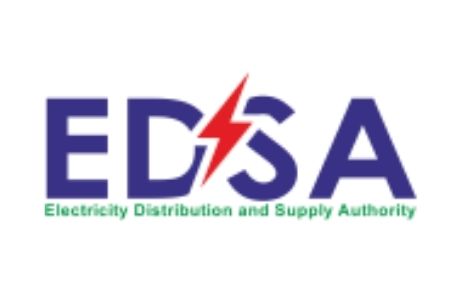By Sayoh Kamara
Introduction State-Owned Enterprises (SOEs) play a crucial role in Sierra Leone’s economy, providing essential services in sectors such as energy, transportation, and mining. However, despite their importance, these enterprises have faced persistent challenges, including inefficiency, financial mismanagement, and political interference. This article critically examines the performance, governance, and impact of Sierra Leone’s SOEs, highlighting key issues and potential reforms needed to improve their contribution to national development.
The Role of SOEs in Sierra Leone Sierra Leone’s SOEs operate in critical sectors, including:
Energy: The Electricity Distribution and Supply Authority (EDSA) and the Electricity Generation and Transmission Company (EGTC) are responsible for power distribution and generation, respectively.
Transportation: The Sierra Leone Ports Authority (SLPA) and Sierra Leone Road Transport Corporation (SLRTC) manage maritime and road transport services.
Mining: The Sierra Leone Mining Company (SLMC) oversees government participation in the mineral sector.
Financial Services: The Sierra Leone Commercial Bank (SLCB) and Rokel Commercial Bank (RCB) provide banking services.
These SOEs were established to ensure service delivery in areas where private investment is limited or insufficient. However, their operations have been fraught with difficulties that hinder their efficiency and effectiveness.
Key Challenges Facing SOEs
Financial Mismanagement and Debt Accumulation:
Many SOEs in Sierra Leone suffer from poor financial management, leading to mounting debts and operational inefficiencies. The reliance on government bailouts strains public finances and diverts resources from other critical development projects. For example, EDSA has struggled with revenue collection due to widespread electricity theft and billing inefficiencies, contributing to financial losses.
Political Interference and Governance Issues:
Political influence often undermines the autonomy of SOEs, leading to the appointment of unqualified personnel and misallocation of resources. Many enterprises operate without proper accountability mechanisms, reducing transparency and increasing opportunities for corruption. The lack of clear governance structures limits their ability to function effectively and independently.
Operational Inefficiencies:
Many SOEs are plagued by outdated infrastructure, inefficient business processes, and a lack of innovation. Poor service delivery has led to increased dissatisfaction among citizens, prompting calls for greater private sector participation. For example, SLRTC has struggled to maintain an effective public transport system due to aging buses and inadequate funding.
Limited Revenue Generation and Overreliance on Government Support:
Despite their strategic importance, SOEs often fail to generate sufficient revenue to sustain their operations. Inefficient revenue collection, poor investment strategies, and financial mismanagement result in heavy reliance on government subsidies, which is unsustainable in the long run.
Potential Reforms and Recommendations:
Strengthening Governance and Accountability:
Implementing stricter governance frameworks, including transparent appointment processes and performance-based management is essential for improving SOE efficiency. Establishing independent oversight bodies to monitor operations can enhance accountability and reduce corruption.
Encouraging Public-Private Partnerships (PPPs):
Collaborating with the private sector can introduce much-needed expertise and investment into SOEs. PPPs can improve service delivery and operational efficiency while reducing the financial burden on the government.
Enhancing Financial Management Practices:
Introducing stringent financial controls and adopting modern accounting standards will help improve transparency and sustainability. SOEs should also explore alternative revenue-generation strategies to reduce their dependence on government subsidies.
Modernizing Infrastructure and Services:
Investing in modern infrastructure and adopting innovative business models can improve service delivery. For instance, EDSA could benefit from smart metering technology to enhance electricity billing and reduce losses.
Depoliticizing SOEs:
Ensuring that SOEs operate independently of political influence is crucial for their success. Merit-based recruitment and professional management can enhance operational efficiency and long-term sustainability.
In conclusion Sierra Leone’s SOEs are integral to the nation’s economic development but are currently hindered by financial, governance, and operational challenges. Addressing these issues requires comprehensive reforms, including improved financial oversight, governance restructuring, and strategic private-sector partnerships. By implementing these changes, SOEs can transition from being a financial burden to becoming productive assets that drive sustainable economic growth and development.
Meanwhile, in Parliament recently; as recent as Tuesday 25th March, 2025, there was an attempt by the Ministry of Finance (MoF) to sanitize the SOEs so as to make them economically viable and with strengthened governance system in a Bill entitled, “State-Owned Enterprises and Governance Act, 2025”.
According to the Deputy Minister of Finance II, Bockarie Albert Kalokoh who laid the Bill in the Well, this Bill seeks to address a number of seen shortcomings in the operations and management governance of the SOEs aimed at revamping them and rendering them economically viable to the State.
The Minister asserts among other renovations that the Bill will provide a framework for the effective ownership and governance of the SOEs on behalf of government by providing clear guidelines and standards to ensure their operational transparency fiscal accountability and good governance. The Bill he further maintains, will ensure the SOEs provide better economic management systems that promotes fair competitiveness and promotes public trust.
It is worthy to note that Sierra Leone owns a staggering twenty-four (24) State-Owned Enterprises (SOEs), but only a few remain under its purview with their burden still heaped on Government.
However, the poor performance of most if not all of the SOEs continues to spark debates as to whether they should be privatized or to be left to hang on, and serving as outlets for political appointees while bleeding State resources or be completely sold out and free government from any liabilities but rather to rely only on taxation revenues from the sold entities.


